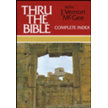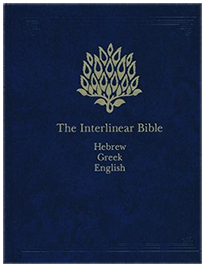Hello! It’s John and please allow me to say: Welcome & Thank You for Your Interest in What Is The Best Way To Study The Bible for growing your relationship with God!
I am a Licensed and Ordained Minister of the Gospel of Jesus Christ and a man transformed by the Love, Power, Promises, and Word of God…It’s my mission to share insights into The Way, The Truth, and The Life, so that you may also enjoy the Fruits of the Spirit — Let’s Grow!!!
The Bible has been studied and interpreted in various ways over the centuries, with everyone–from laymen to theologians, from ordained ministers to your next-door neighbor–offering their perspective. Utilizing many, or any, studying method is potentially useful, but only if they adhere to the sound doctrine of Christ Jesus.
I believe, however, that before following man’s instructions, we should test any method against Scripture itself; just as the Bereans did (Acts 17:11) and as we are commanded to test all spirits in 1 John 4:1.
While I do not oppose, but encourage, studying historical depictions of events, study of original language transcriptions, and deeper inquiries into biblical topics and what God has said, I hold that Christ’s message is simple (2 Corinthians 11:3); we do not need to interpret or question what is stated and defined by God.
Jesus calls us to obey His instructions rather than to reinterpret them (Luke 6:46-49). Research for clarity on how to obey God’s Instructions is noble: I do it, myself. Researching to find a meaning other than declared, or seeking to alter what God has plainly said, is a dangerous path that can lead to false doctrine… and many are led astray in this manner.

With that in mind, I will discuss three primary methods of Bible study: Hermeneutics, Exegesis, and what I call the Obedience Method—simply doing what the Bible says, rather than trying to figure out what it means.
Another thing that needs mentioning is that God will not give us knowledge that we are not ready to use responsibly. By that, I mean it’s ok not to understand a passage, a verse, or even an entire book, of the Bible. Perhaps we are not ready to use it without erroneously informing or misleading others.
God will give us understanding when it is the exact and correct time for it to be most impactful is at hand—when we, ourselves, or, more often than not, when someone we are in contact with, or will be coming into contact with, needs it the most.
Having supplied the groundwork, let’s discuss the most popular study methods.
Hermeneutics — Understanding the Context
Hermeneutics is a method of Bible study focused on interpretation. The goal is to grasp the historical, cultural, and literary context of Scripture to ensure the intended meaning is preserved. There are four main steps in Hermeneutics:
- Historical and Cultural Context: Understanding the time and culture in which a passage was written can shed light on its meaning. For example, understanding the Jewish customs and Roman occupation during Jesus’ time adds depth to His teachings.
- Literary Context: This step involves examining the broader textual environment of a verse or passage. Is it part of a letter, a poem, or a historical account? Each literary form has its conventions that help clarify meaning.
- Observations: What do you see? This involves taking note of repeated words, key themes, and the structure of the text. Are there contrasts or comparisons? These observations guide the reader to a deeper understanding.
- Application: After understanding the passage, you determine how it applies to your life. However, it’s important to remember that God’s Word is not primarily about what it means to us, but what it says about God and what He is instructing us to do.
While helpful for gaining insight into the Bible, Hermeneutics, inherently, involves interpretation of what God said, which leads me to a critical point: if the Bible is to be obeyed, why do we need to interpret it?
Did God not make His message clear? Can Christians not rely on the Holy Spirit to teach us, guide us, and call the remembrance of what Jesus has said and taught? Jesus says we can:
John 14:26:
But the Comforter, which is the Holy Ghost, whom the Father will send in my name, he shall teach you all things, and bring all things to your remembrance, whatsoever I have said unto you.
Exegesis — Drawing Meaning from the Text
Exegesis is another approach often used in theological study. It involves a critical explanation or interpretation of a text, especially in Scripture. When done well, biblical exegesis seeks to pull meaning directly from the text, without imposing external ideas into the core meaning.
Exegesis goes hand in hand with Hermeneutics, as both methods focus heavily on interpreting Scripture. This requires intellectual engagement with the historical, cultural, and linguistic factors involved in the text. While there’s value in understanding the times and circumstances in which the Bible was written, this approach relies too much on interpretation for my liking.
Hermeneutics and Exegesis both assume that we, as readers, need to extract meaning beyond what God plainly said. They emphasize interpretation, which, I believe, introduces unnecessary complexity and risks for distorting God’s message.
Theologians agree that if there is even one contradiction in the Bible, the entire plan of salvation falls apart. But should we really be looking for contradictions or hidden meanings? Or should we merely obey the Word of God as written?
The Obedience Method — What Does the Bible Say?
This leads me to what I think of as the Obedience Method. It’s a simple approach based on taking the Bible at face value.
Hermeneutics and Biblical Exegesis are great methods for understanding what believers and followers of Christ went through to get the Gospel to us. Historical context is great for showing us that while the degree of what they went through, and the tools for sinning or being attacked or punished by the enemy, may have been different, the sins and the answers for guarding against and being forgiven for those sins were precisely the same.

Since the fall of man, the base emotions, as well as the mixture of them, have been the same and remain until the restoration of the corruptable is restored to the incorruptible:
- fear/peace
- anxiety/ confidence
- depression/cheerfulness
- sorrow and grief/joy and happiness
- misery/contentment
- despair/hope
- agony/pleasure
The list goes on and on, but the point is that all the emotions of mankind have never changed unless God is both the designer and the instrument of the change. He was in the Garden of Eden at the fall of mankind, and He is and will be again as the instrument of restoration (1 Peter 1:23; 1 Corinthians 15:42-54)…
My point is that only the ease with which sins are available has changed with time and technology; sin, itself, has not changed by one iota. The root causes of sin and the mediation and answers for sin–what the followers of Christ went through and for everyone since–are the same, no matter what timeframe we are considering: past, present, or future (until God perfects His restoration).
2 Timothy 3:16 affirms that all Scripture is God-breathed. So everything the Written Word contains was inspired by God, Himself. It is not a book to be interpreted, or dissected for hidden meanings, but one to be obeyed. Should we study it? Yes.
Should we look at historical accounts and original languages? Yes, if we are so inclined, but that is not necessary for obedience to the instructions of God: The Written Word. ..
If we obey, our lives will certainly be enriched with peace, confidence, strength, perseverance, trust, and joy, we will stand, unshakeable, unmoveable, upon the foundation that is the Solid Rock of Jesus Christ and all that He said and taught and promised (Matthew 7:24-27).
God is perfect, omnipotent, omniscient, and omnipresent. He gave us specific instructions, correlated with his power, wisdom, concern, and love, and those instructions for a quality life and eternal living are immutable, unchangeable…
God’s attributes—His love, omnipotence, sovereignty, wisdom, and holiness—prove that He doesn’t need our interpretations to clarify His Word. He created the universe and everything in it. Why would we think He’s incapable of communicating his will to us, without error and in a timely fashion?
For example, some believe that there are “lost books” of the Bible, but this idea contradicts the belief in God’s omniscience and omnipotence. If God intended certain texts to be included in the Bible, they certainly would have been. This idea of interpreting Scripture differently over time, due to changes in culture or technology, would have to incorporate diminishing God’s power and wisdom.
The Bible declares the heart to be deceitful above all things and desperately wicked (Jeremiah 17:9-10). Therefore, relying on our interpretations and feelings rather than simply obeying God’s Word can lead us to serious error. Obedience is better than sacrifice (1 Samuel 15:22), and if obedience is held in such high regard, why would God make His instructions anything but clear?
God’s Attributes and the Simplicity of Obedience
God’s attributes—His love, omnipotence, omniscience, and holiness—should give us confidence in the clarity of His Word. Here’s why:
- Love: God’s love is perfect, and His commands are designed for our good. We should trust that His instructions are clear and loving.
- Omnipotent and Omniscient: God has the power and knowledge to ensure nothing is left out of His Word. His message is complete and sufficient for all time.
- Immutable and Eternal: God never changes, nor do His instructions. The same commandments that applied thousands of years ago apply today. Sin has remained the same throughout human history, and so has God’s response to it.
Theologians universally agree on these attributes, so it follows that God’s Word is trustworthy as it is. Why, then, should we feel the need to interpret it in ways other than what it says?
Testing Methods Against Scripture
As we study the Bible, it’s important to test all methods—Hermeneutics, Exegesis, or any other approach—against the Scripture, themselves. The Bible commands us to do this (Acts 17:11; 1 John 4:1). While research into historical context and original languages is valuable, we should always prioritize obedience to God’s Word over human interpretation.

Again: 2 Timothy 3:16 declares that all Scripture is God-breathed. As God is Omnipotent, Omniscient, and Omnipresent, the Holy Bible is not a book to be interpreted, or dissected for hidden meanings, but one to be obeyed, trusting that God will do all he has declared.
It boils down to several questions. Do we believe God means what He says? Or are we uncomfortable with His commands and looking for ways to justify our disobedience? The Bible clearly states that obedience is what God desires (Luke 6:46-49), and we should approach it with the intent to obey, not to reinterpret.
Conclusion — Obeying God’s Word
At the heart of Bible study is a choice: do we believe God’s Word as it is written, or do we seek to interpret it to fit our desires and expectations? The Obedience Method calls us to merely do what God commands, trusting He has communicated His will accurately and completely.
God said it. I believe it.
- When I obey God’s Word I find wisdom, strength, peace, joy, and perseverance.
- When I deviate from His commands I experience confusion, unrest, and distance from Him. I am unstable in all my ways.
- The Bible is not a puzzle to be solved or reinterpreted—it is a divine guide to be followed.
God has given us His Word for our well-being. Let us study it with the goal of obedience, not interpretation, trusting that He has said exactly what He means for us to hear and that through them He has provided all we will ever need—in this life and throughout eternity.
In closing, and for full transparency, I would like to share with you that this website contains affiliate links. If you click a link to a product and then make a purchase, I may receive a small commission. Don’t worry, however. There will be no extra or added cost to you for making a purchase through any of the links anywhere on the Truths Of Faith website. It’s a simple way you can support my mission to bring you quality content, biblical truths, and Christ-centered products and services.
Having asserted that obedience is better than interpretation I also believe that a deeper understanding of what the scriptures instruct is key to a blessed and more profound service to God… I wish to share several resources that were very impactful in my growth, spiritually as well as in knowledge.
For those of you who wish to have a simple, accurate, and easy-to-follow explanation of the scriptures, with historical facts, depictions, and time-honored and proven truths, I recommend the following resource—it was and continues to be, instrumental to my biblical and spiritual growth and in helping me to understand the importance of obedience over interpretation. It is also a great resource for preparing sermons for pastors and lay preachers alike.
 |
Thru the Bible Commentary Set with Index, 6 Volumes By J. Vernon McGee / Thomas Nelson |
Yes, the scriptures are to be obeyed, but for those who seek a deeper understanding in order to obtain a better talent for obedience, Dr. J. Vernon McGee’s explanation of scripture is doctrinally sound and extremely easy to follow. He did not let his superior intellect get in the way of what Paul describes as the simplicity in Christ! (2 Corinthians 11:3)
For His Bachelor of Divinity degree from Columbia Theological Seminary, he graduated magna cum laude, and earned degrees as a Master of Theology and Doctor of Theology from Dallas Theological Seminary… Yet, for all of that, he was a simple man, with a simple message.
There are five volumes and an Index in his commentary on the Holy Bible. He is responsible for the international radio program, Thru the Bible with J. Vernon McGee (it began in 1967 and expanded to broadcasting in over 100 languages and 160 countries around the globe.
For those who already possess the 5 volume commentary and would like to have the Complete Index for those volumes, it can be purchased individually:
 |
Thru the Bible: Complete Index By J. Vernon McGee / Thomas Nelson |
And for accuracy in translation from Hebrew and Greek to English, this Interlinear Bible was the foundation of my understanding of the original Word of God:

The Interlinear Bible: Hebrew-Greek-English
by: Jay P. Green
This Bible shows all the Old Testament Hebrew and New Testament Greek words, with the corresponding English words immediately below the original language words. It also places the Literal English Translation in the left side column.
Every Hebrew and Greek word is keyed to the Strongs Concordance. Please remember that Hebrew is read from right to left, so you must read the word-for-word translation, beneath the Hebrew words, from right to left as well (Left to right for reading the Greek translation).
Thanks for your interest in growing your relationship with God…
I have other articles on Building & Strengthening your Faith, Forgiveness, Grace, Love, Hope, and Wisdom, and – God willing – I’ll be adding content continuously into the future.
Thanks for your interest in growing your relationship with God.
May God Bless & Keep You & Yours, Always,
John
Founder of TruthsOfFaith.com

This article provides such a thoughtful and insightful approach to Bible study! I really appreciate how you emphasized the importance of obedience and trusting God’s Word as it is written, rather than relying too heavily on interpretation. The balance between understanding historical context and simply following God’s commands is refreshing. I’m curious—how do you recommend someone balance studying for deeper understanding, like using Hermeneutics, while also maintaining the simplicity of obedience in their daily walk with God?
What Is The Best Way to Study The BibleHello Vlad_B!
Thank you for your positive feedback and your question.
You are correct, there has to be a balance between research, studying for deeper understanding, and maintaining the simplicity of obedience in our daily walks with God.
The way I find the most effect is that in my daily walk with God, I am practically in constant prayer, whether consciously or subconsciously… Acknowledging His Power and Wisdom and Forgiveness and Grace.
I am always aware of the beauty around me and this causes a constant deep-seated gratitude for God. I find that as my appreciation for God grows, my hunger for knowledge of him grows proportionately.
This is where the balance comes in. Whenever we are focused on God, He is focused on us. James says, “Draw near to God and He will draw near to you.” (James4:8).
To study to learn more about God because we are drawing nearer to Him is fantastic, but to study to find out what God meant, when He said what He said, is –or can be–extremely misleading.
Did God really say? Surely God did not really mean…Is the question and statement that led to the fall of Man (Genesis 3:1-6). Twisting God’s Word is always dangerous, confusing, and the opposite of wisdom.
The times, places, conditions, consequences and rewards for faith demonstrated or expressed, are all listed in the Bible text. The instructions of God are all listed in the Bible text. Eveything that anyone could ever need to live a quality life, to avoid the pitfalls of sin and sinful man, to find peace and joy and strength and forgiveness and perseverance, are listed in the bible.
When we obey the Bible, the results promised therein are delivered.
So, by studying Hebrew, Aramaic, and Greek, substantiating and appreciating God, we are honoring him—He desires that we know him as intimately as possible.
If, however, we do those things to DEFINE God–which is what a large portion of Christians do–we become confused, double-minded, and unstable in all our ways.
For a deeper look at other topics, please follow the following links: Building & Strengthing your Faith, Forgiveness, Grace, Love, Hope, and Wisdom.
Thanks for your interest in growing your relationship with God through uncovering His truths.
May God Bless & Keep You & Yours, Always,
John
Founder of TruthsOfFaith.com
These are very practical tips for Bible study. One way I’ve found that helps me grow more in my research of the word is sharing it with others. This sharpens my focus and endeavors to follow and obey the word. I read and discuss it so my understanding becomes more keen and my walk with the Lord improves.
What Is The Best Way to Study The Bible
Hello Elridge!
I am honored you enjoyed the article and you’re definitely correct concerning sharing with others being very beneficial in your spiritual growth.
The Bible instructs us to do just that in (Hebrews 10:24-25). For Fellowship and for encouragement and study (Proverbs 27:17).
For a deeper look at other topics, please follow the following links: Building & Strengthing your Faith, Forgiveness, Grace, Love, Hope, and Wisdom.
Thanks for your interest in growing your relationship with God through uncovering His truths.
May God Bless & Keep You & Yours, Always,
John
Founder of TruthsOfFaith.com